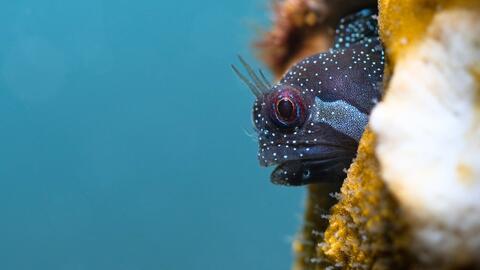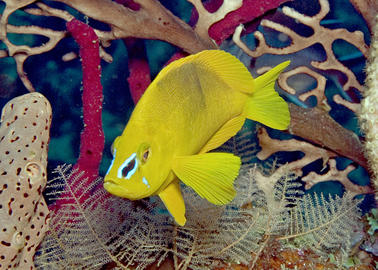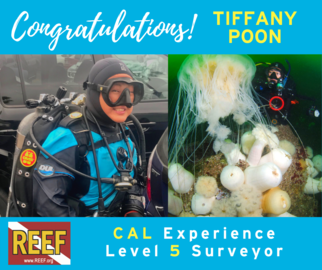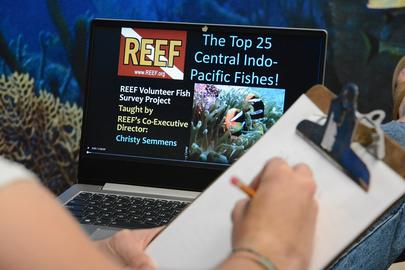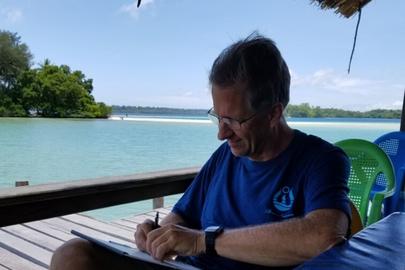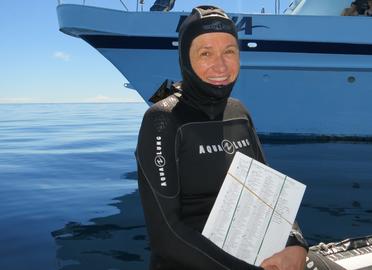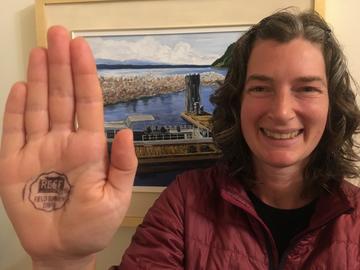Home to several of the most species-rich sites in REEF’s Tropical Western Atlantic database, Bonaire is legendary among underwater naturalists and REEF surveyors. This trip includes nine boat dives as well as unlimited shore diving opportunities throughout Bonaire's marine park. A rental vehicle is included with each room so participants may access many different shore-diving sites. Bonaire is an excellent place to expand your knowledge of Caribbean fish species alongside other marine life enthusiasts.
Current search
Search found 303 items
- tropical western atlantic
While every one of REEF’s 10,000+ volunteers who have conducted a survey as part of the Volunteer Survey Project are Making Dives That Count, there is a small cadre of surveyors who have taken their passion for fish and critter watching to the next level. They are the volunteers, those most active in each of REEF’s project regions, who have actively strived to move through the REEF Experience Level system, often becoming REEF Experts and members of the Advanced Assessment Team (AAT).
Home to eight of the most species-rich sites in REEF’s Caribbean database, the reefs of Bonaire are legendary among underwater naturalists. Participants will enjoy a fun-filled week of up to 12 boat dives on a spacious dive boat, as well as unlimited shore diving throughout Bonaire's marine park. |
Please put your pectoral fins together for the following REEF members who have recently moved up an Experience Level within our Volunteer Fish Survey Project!
Volunteers have the opportunity to advance through five levels (Novice through Expert) within each of our survey project regions. Experience Levels are obtained by a combination of fish/invertebrate ID tests and surveys submitted. As surveyors advance, their surveys are categorized in our online sightings database accordingly.
They've worked hard to move up a level - with a combination of submitting surveys AND passing a fish ID test - so let's give a big shout out to all of these fine citizen scientists who have advanced recently! Volunteer surveyors move through Novice and Expert Levels and their submitted survey data is categorized into these levels.
Want to know more? Check out this page: https://www.REEF.org/REEFs-experience-levels
California (CAL/PAC)
Fishinars
Fishinars are free webinars that will teach you the finer points of fish ID. These educational sessions are open to anyone wanting to learn more about marine life. They are great for new REEF surveyors or anyone who wants to review. We record all Fishinars and make them available online for viewing at any time. With more than 190 archived sessions, you can find one for every ocean region and every level of experience.
When a REEF volunteer surveyor has submitted 1,000 surveys, he or she becomes a member of the Golden Hamlet Club, named for the rare, sought-after species found in the Tropical Western Atlantic region. REEF survey regions cover the globe and our volunteers are able to survey in tropical and temperate waters worldwide.
The study used REEF's Volunteer Fish Survey Project database to produce a new map of marine fish biodiversity across the Caribbean and tropical western Atlantic. The work, performed by scientists from the Center for Macroecology, Evolution & Climate in Denmark and the Marine Biological Association, studied REEF’s extensive data base collected by our volunteer surveyors to produce the map and find that fish biodiversity is strongly linked to sea temperatures.
REEF is proud to announce Janet Eyre as our 2016 Volunteer for the Year. Janet has been a REEF member since 2002, and she is one of REEF’s most active surveyors. She is a Golden Hamlet member and to date has conducted 1,612 surveys (and counting!).
Let's put our pectoral fins together for the following REEF members who have recently moved up an Experience Level in our Volunteer Fish Survey Project!
Volunteers have the opportunity to advance through 5 levels (Novice through Expert) within each of our survey project regions. Experience Levels are obtained by a combination of fish/invertebrate ID tests and numbers of submitted surveys. As they advance, their data is categorized in our online sightings database accordingly.

